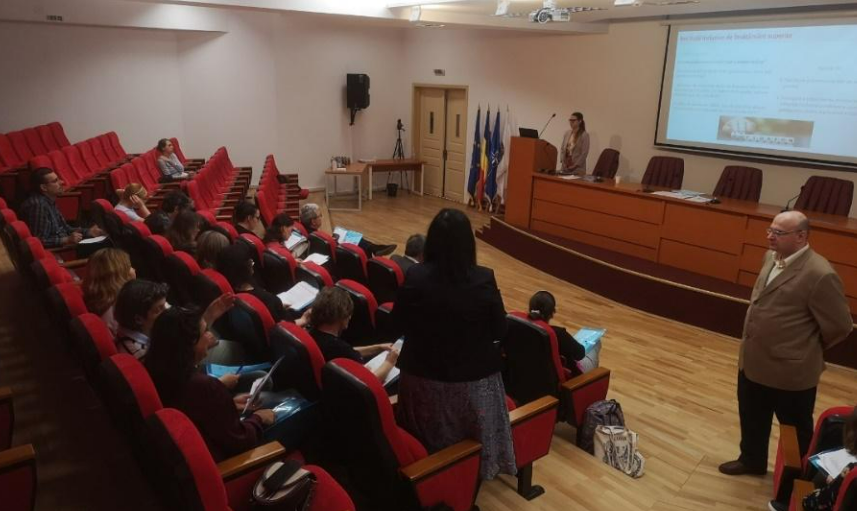As part of the InclusiveHE project, a Training Course entitled ‘Design, implement and monitor effective inclusive policies and practices in HEIs’, has been developed with the aim of supporting learning designers and academics in the design of inclusive education programmes. The course seeks to support and encourage the development of inclusive courses for students with various inclusion needs, so they could have an equal opportunity to learn with students without such needs.
The Inclusive Higher Education Training Course consists of:
-
A pedagogical guide with concrete guidance on how to facilitate the training as a face-to-face activity
-
A flexible training module, which can be adapted by the trainer to the needs of his/her audience.
These resources are available online and open source in English: https://inclusivehe.eu/en/training-course
The University of Pitesti organized a 4-hour training course on May 19, 2022 with 3 trainers from the project implementation team presenting the course to 22 trainees, all academics of the University of Pitesti.
Through the Design Thinking Methodology, the trainer encouraged the interaction between participants, using the Flipped-Classroom concept. During the course and at the end of it, the trainees expressed their interest with the notions taught and considered the training experience useful for their professional activity in higher education. Some of the comments by trainees:
“What I appreciated the most at the InclusiveHE Training Course is the interactivity between trainers and trainees, as well as the proposed practical applications.”
“The topics addressed during this training course were relevant to me in the national and European context. I think they were interesting for all participants, for those who had a professional training in Education Sciences or related fields, like I do, and those who did not have professional or personal experience on inclusive practices in higher education.”
“I intend to continue the training in the field of inclusion in higher education by exchanging experience with teachers from other universities, both in Romania and in foreign countries.”
“The improvement of my professional practices as a result of this training could be achieved by adapting educational content and their form of teaching for students with special learning needs or disadvantaged groups.”
“I am very enthusiastic about this training course and I am willing to participate in future actions and projects that will promote good inclusion practices in the University of Pitesti.”
These testimonials from the participants show that the course was a real success in Romania and that the InclusiveHE consortium indeed developed useful material for Higher Education.



